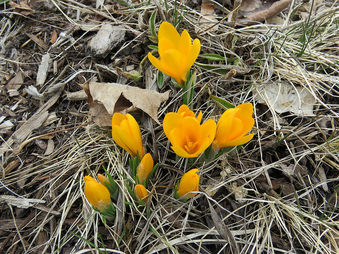The Man Who Couldn't Grow Up
"The memories are his only consolation, and he relives them
constantly in his head, pining for those times
when he was young."
Process Theology recommends two healing practices
for those among us who can't let go of the past:
"Do Something New'" and "Write Thank You Notes"
The Man Who Couldn't Let Go: A Music Video
The video as explained by Dermot Kennedy
"It's the story of a lonely older man who has been laid low by loss. And the video is based around him, but it's also based on his memories, which focus on happier times, when he was passionate, full of life and in love. And now in his old age he is none of those things, due to the loss he has suffered. The memories are his only consolation, and he relives them constantly in his head, pining for those times when he was young. These themes of loss and intense love are also key to the song, and to lots of my music."
JAKE VISWANATH, interviewing Dermot Kennedy
Thoughts on Growing Up
after watching the Video
- I understand the man but also feel sorry for him. Maybe even pity. He has missed the mark of growing up.
- Growing up is lifelong process of shedding old ways and becoming a new self relative to age and context. It begins at birth (and possibly before) and extends to death (and possibly afterwards). Always we are growing up, or at least trying to grow up.
- Always we are called to shed some things in order to make space for growth. Growing up requires the arts of letting go.
- Developmental psychology helps us understand growing up physically, cognitively, socially, and emotionally. Process theology helps us understand it spiritually. The two approaches are complementary not contradictory.
- There's a metaphysical or ontological side to this. According to process theology we are slightly new selves at every moment. A new self builds upon, but is also different from, the selves of the past. You can be a new self at age six, sixteen, twenty-six, sixty-six, or ninety-six.
- In the process of trying to grow up, there is something in the universe which is "on our side." It is a cosmic lure, dwelling with each person as an animating and guiding spirit, that is on the side of each and every life, and that is a source of fresh possibilities for growing up. Process theologians speak of this spirit as God. Other words will suffice as well. The point is that we live in a universe friendly to the process of growing up.
- Once basic needs are met, guiding ideals for growing up, built into the very fabric of the universe, are wisdom, compassion, and interior freedom (freedom from compulsion) in community with others.
- Still growing up is not easy. Every age and circumstance offers the opportunity and also the challenge of becoming a new self, of growing up. Growing up requires a death to the old selves: a letting go of "who I have been."
- One challenge of growing up lies in dealing with inherited patterns of behavior -- good and bad -- that have become habitual. These are addictions. The man is addicted to a memory. That's very painful.
- Growing up requires many things, one of which is trust in the availability of fresh possibilities. Another word for it is "faith." But the trust must be practiced in order to be effective. Growing up, beyond past habits, often begins by "doing something new." And then doing it again. And again.
- Growing up, and growing beyond bad habits, can also be facilitated by the practice of gratitude: that is, learning to be grateful for the goods that have come one's way, regardless of the sadnesses. Slowly, over time, the thinking becomes thanking.
- Thus there are two practices for growing up, especially when you are older: doing new things and gratitude.
Doing Something New

You've seen it and I've seen it, too: grown-ups who aren't very grown up. Like the man in the music video below. He is a very sad man who is trapped in his past and hasn't grown up.
In common parlance we speak of a grown-up as someone past a certain age (the age varies according to culture) who is a mature adult and thus responsible for his or her decisions. We expect this adult to have perspective lacking in teenagers, and we hold them accountable for their lack of perspective if, in fact, they act immaturely. Immature adults can be construction workers, homemakers, corporate executives, or even presidents. They are adults chronologically but teenagers psychologically.
But "growing up" is different from being a grown-up in this conventional sense. It is the process of shedding old ways and becoming a new self relative to age and context. The process is a verb not a noun, an activity not a thing, and it includes the whole of a person's life: emotions, intentions, and behavior. Process theologians speak of this process as creative transformation. It is one way that the very spirit of God is present in each person, moment by moment and day by day. The spirit is inside each person as a lure toward creative transformation, relative to context. How can transformation be practiced? Frederic and Mary Ann Brussat propose that, for many of us, it involved doing something new. In their words:
In common parlance we speak of a grown-up as someone past a certain age (the age varies according to culture) who is a mature adult and thus responsible for his or her decisions. We expect this adult to have perspective lacking in teenagers, and we hold them accountable for their lack of perspective if, in fact, they act immaturely. Immature adults can be construction workers, homemakers, corporate executives, or even presidents. They are adults chronologically but teenagers psychologically.
But "growing up" is different from being a grown-up in this conventional sense. It is the process of shedding old ways and becoming a new self relative to age and context. The process is a verb not a noun, an activity not a thing, and it includes the whole of a person's life: emotions, intentions, and behavior. Process theologians speak of this process as creative transformation. It is one way that the very spirit of God is present in each person, moment by moment and day by day. The spirit is inside each person as a lure toward creative transformation, relative to context. How can transformation be practiced? Frederic and Mary Ann Brussat propose that, for many of us, it involved doing something new. In their words:
"Transformation usually involves the shedding of old ways, especially those that have become burdens. This practice proclaims that no matter who you are, no matter what has already happened to you, no matter what you have done, it is still possible to be and do something new.
Transformation implies a marked change in your life, but you can practice it by making simple changes. Start by doing something different — walk to work by a new route, answer the telephone with your other than usual hand. Break a habit, any habit. Signal Spirit that you are willing to accept change in your life and to be an agent of change in the world."
-- Frederic and Mary Ann Brussat, Spirituality and Practice
Lyrics Three Ways to Practice Gratitude
|
The Science of Thank You NotesProcess and GratitudeYou see it in small towns all over America. High school football reigns supreme, and someone who was a high school football star forever defines himself in terms of that period of his life. He hangs around town, sharing stories of the great game, but never really grows up. He grows old, yes, but he does not grow up. The Practice of GratitudeClick on the link for quotes, practices, videos, and much more:
No One without the ManyGratitude is a most Whiteheadian of virtues. It frees the mind of the cramping confines of the ego, including its obsessions with the past, and opens up the heart to a recognition of the many ways in which, as individuals, we are composed of our relationships with others, apart from which we could not exist at all. It reveals "the many" that "become one" in our lives, moment by moment, bringing us into existence. A natural response is "thanks." |




